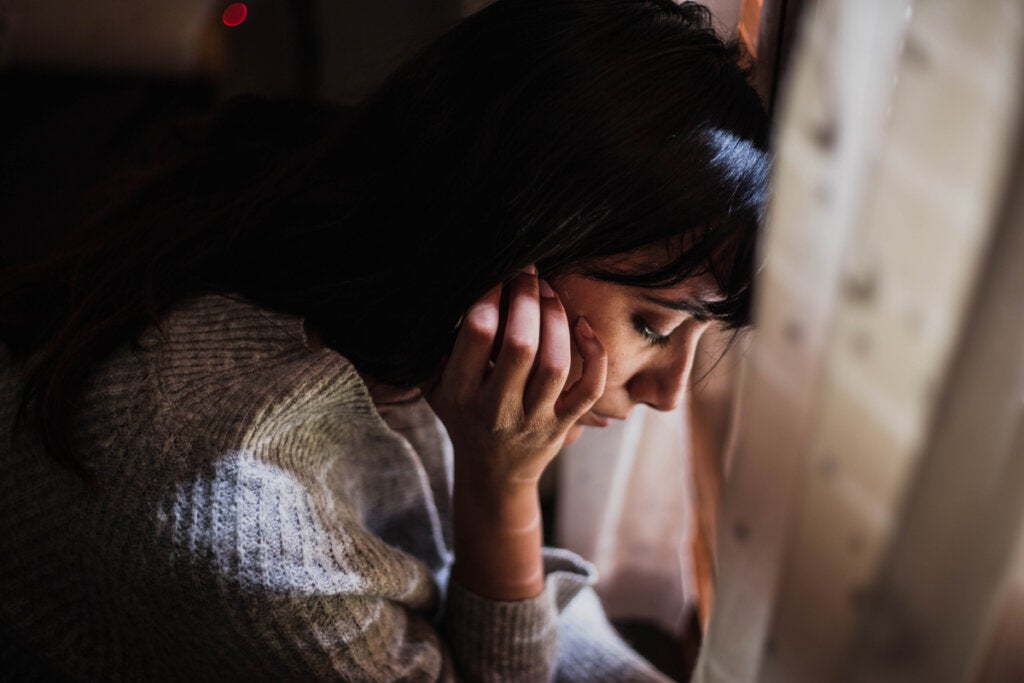Emotional wounds consist of the damage that you experience throughout your life and that condition your way of interpreting the world and dealing with it. Virtually all of us have some emotional wounds, but identifying them and accepting their presence isn’t easy. If you’re one of those who dared to face the damage and address it, you may have been disappointed to discover that a wound you thought was healed, in reality, wasn’t.
Forgiving the hurt that your parents, friends, partners, or classmates caused you is complicated. Furthermore, integrating those painful memories and learning from them in order to grow is hard work.
The sense of accomplishment and freedom that comes when you get the job done makes it definitely worth the effort. However, what happens if, suddenly, the wound starts to hurt again? If you find yourself again feeling anger, fear, or sadness in the face of situations that you thought you’d overcome? What can you do if you find you’re falling back into your old patterns of behavior?
What to do if an emotional wound reopens?
Accept it as part of the process
When you relapse into something that you thought you’d overcome, you often panic. You may even start to think that all the work you did was useless and that you’ve been lying to yourself, thinking that you’d made progress and that now you’ll never be able to get ahead. Nevertheless, nothing could be further from reality. In fact, healing is a process and isn’t usually linear. There are advances, pauses, and setbacks, and they’re all part of the journey.
Perhaps you hoped that, once you’d dealt with your pain, you wouldn’t feel it again when thinking about that person or situation. Maybe you thought that, after facing your fear, you’d stop feeling frightened. Or perhaps you believed that, by learning new ways of thinking and reacting, you’d never go back to your old behavior. However, it’s okay if this happens. In fact, it’s normal and it certainly doesn’t mean you’ve gone back to square one.
Congratulate yourself for identifying it
One of the greatest forms of evidence that all your personal work hasn’t been in vain is that you’ve been able to identify those emotions or behavior patterns. Indeed, acknowledging what’s happening will help redirect you along the path you’re taking.
Use your resources
It’s important to bear in mind that a stumble isn’t a relapse. On the contrary, it’s an opportunity to detect where you’re failing and use the resources that you previously learned about. For example, if, when healing the grief, you understood that zero contact was beneficial to you, you may discover that you’re feeling pain again because you’ve begun to look at the social media pages of your ex-partner. Or perhaps if, when overcoming a phobia, you verified that facing what you feared made you less afraid, you might’ve relapsed because you’ve started to avoid them again.
You should check your internal dialogue and your thoughts as it’s possible that these have changed and are influencing the reopening of your emotional wound. Have you frequently recalled past events, thinking about how unfair or cruel what happened to you was? How do you talk to yourself? Are you empowered or discouraged with your inner talk? Thoughts are at the base of your emotional states. Therefore, check how they’ve changed and you’ll find out how you should go forward.
Be patient
Lastly, be patient with yourself. Feeling like you’re going backward can be exasperating, but it’s important not to judge yourself, blame yourself, or try to rush the process. Because you don’t have the same levels of energy or feel in the same mood every day.
It’s possible that one day you’ll find yourself raising your voice again in an argument, even though you’ve set out to be more assertive. It’s normal that despite the fact that you’ve improved your ability to set boundaries, at some point you’ll let them slip. Take one step at a time. You’re doing well.

What if your emotional wound is still open?
Despite the above, it’s possible that if fears, pain, or patterns that you thought were healed resurface, it’s because you never really worked on them in any depth. Perhaps there’s something missing you need to discover, understand, or address. If this is the case, you may find it helpful to seek psychological assistance. Even if you’ve already had help, if you feel that something is still missing, don’t hesitate to resume the process.
The post What You Should Do if an Old Emotional Wound Reopens appeared first on Exploring your mind.



















Comments